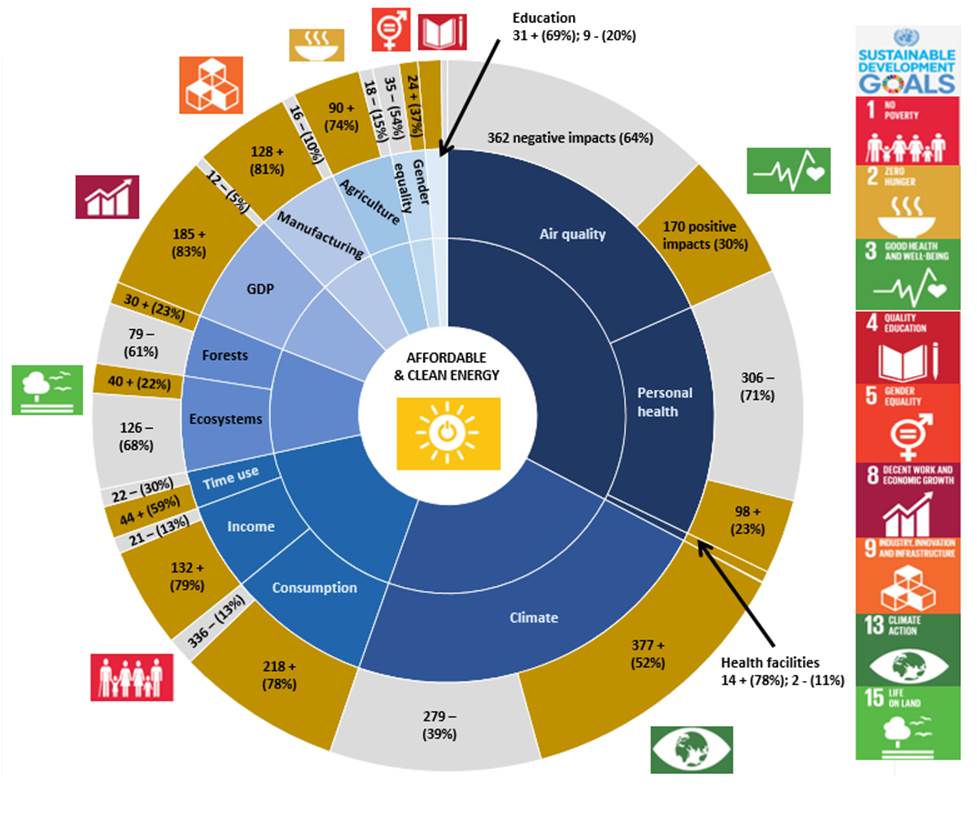Is Energy the Golden Thread?
A systematic review

Minding the Gap between Research and Practice
Access to sustainable, reliable, and affordable energy is a significant policy goal and also a hot research topic. Researchers have conducted many investigations and published thousands of papers about energy, economic growth, and human development. What are the areas of scientific consensus, and where is there still disagreement? Which themes, intersections, and contexts have been well studied, and which are relatively unexamined?
This project aims to maximize the value of existing research and identify gaps between research and practice, highlighting under-studied themes and encapsulating what is well-understood regarding the relationship between access to modern and reliable energy and wider economic, social, and environmental outcomes. Duke researchers undertook a comprehensive and systematic literature review—initially identifying nearly 80,000 peer-reviewed academic papers that potentially address energy access and energy transitions. A team of research assistants manually inspected each study and used a comprehensive coding matrix to summarize information from quantitative studies that analyze human dimensions of energy use in low- and middle-income countries. The review provides a comprehensive report and a series of intuitive visualizations to characterize what is well-known and well-understood, and what themes, regions, or intersections have been insufficiently explored. This in turn helps policymakers and practitioners understand the extent of evidence on energy transitions, and helps researchers target domains where additional study could support decision–makers’ needs.
Duke Staff/Faculty: Faraz Usmani, T. Robert Fetter, Marc Jeuland, Subhrendu Pattanayak
Students & Former Students: Erin Litzow, Lauren Masatsugu, Erin Litzow, Yating Li, Caitlyn Graovac, Eric Burton, Samantha Childress, Shiyuan Dong, Vanessa Ferrero Mendoza, Sumin Wang
Energy as a Golden Thread: What do we Know?
80%
OF STUDIES FOCUS ON COOKING
Within the body of interdisciplinary literature on the effects of energy services on household health (438 unique studies), approximately 80% of studies focus on cooking, followed by heating (24%) and lighting (11%). Only 16 studies consider the impacts of energy on health facilities.
Very few (just 67) quantitative studies demonstrate the effect of energy on gender equity. Of these, the great majority (57, or 85%) focus on cooking services; other foci are lighting (22%) and heating (19%). Some studies consider multiple services.
67
QUANTITATIVE STUDIES ON GENDER EQUITY



